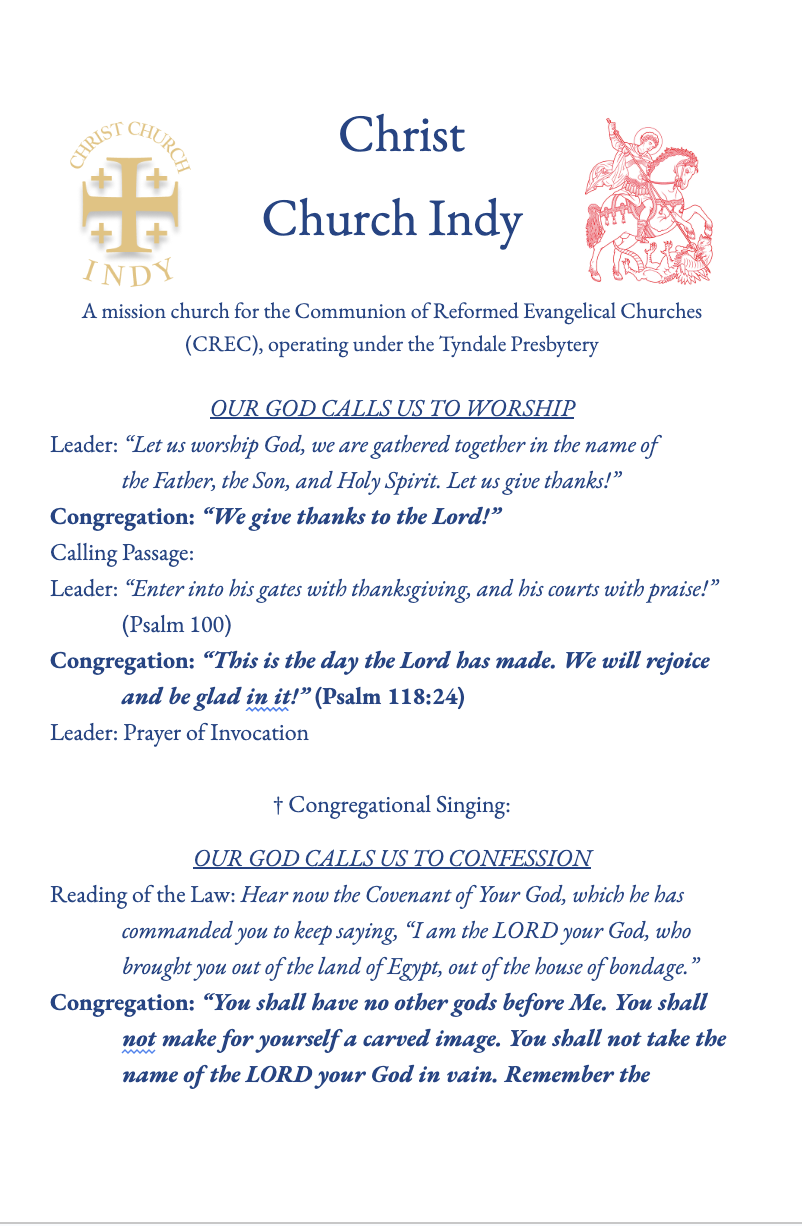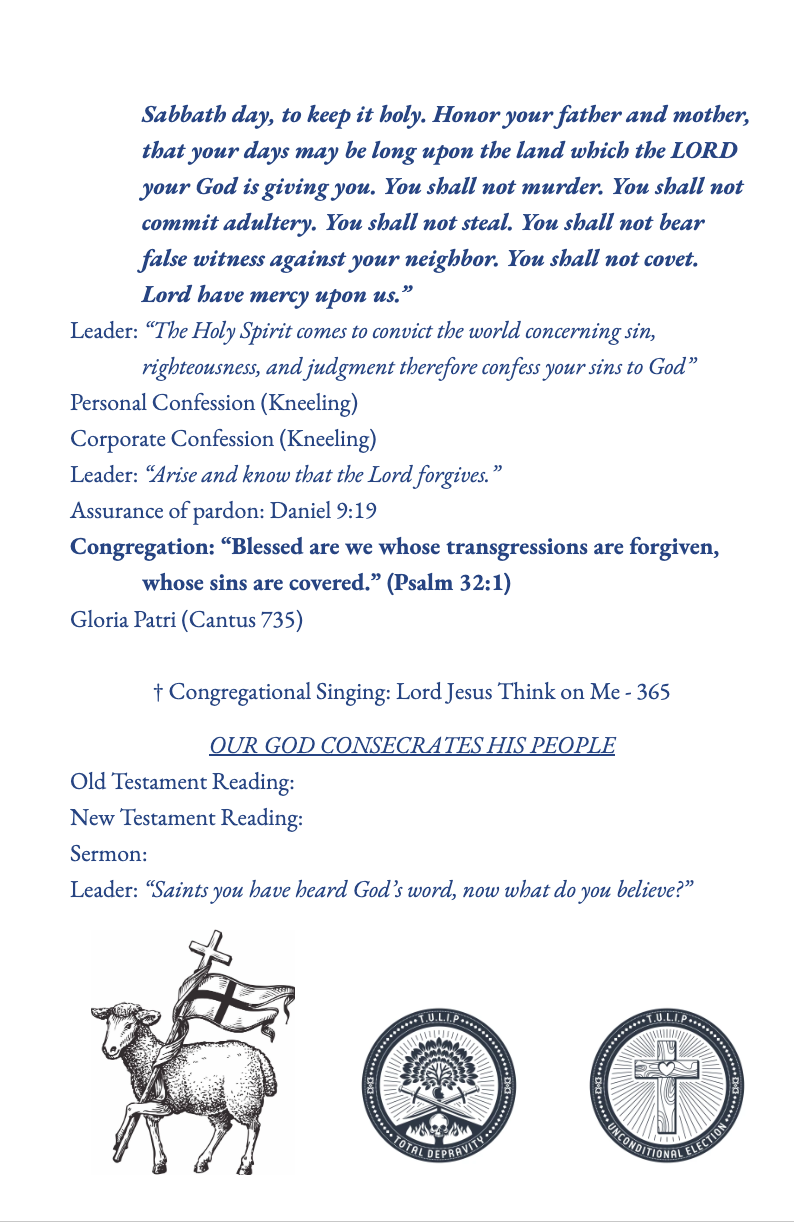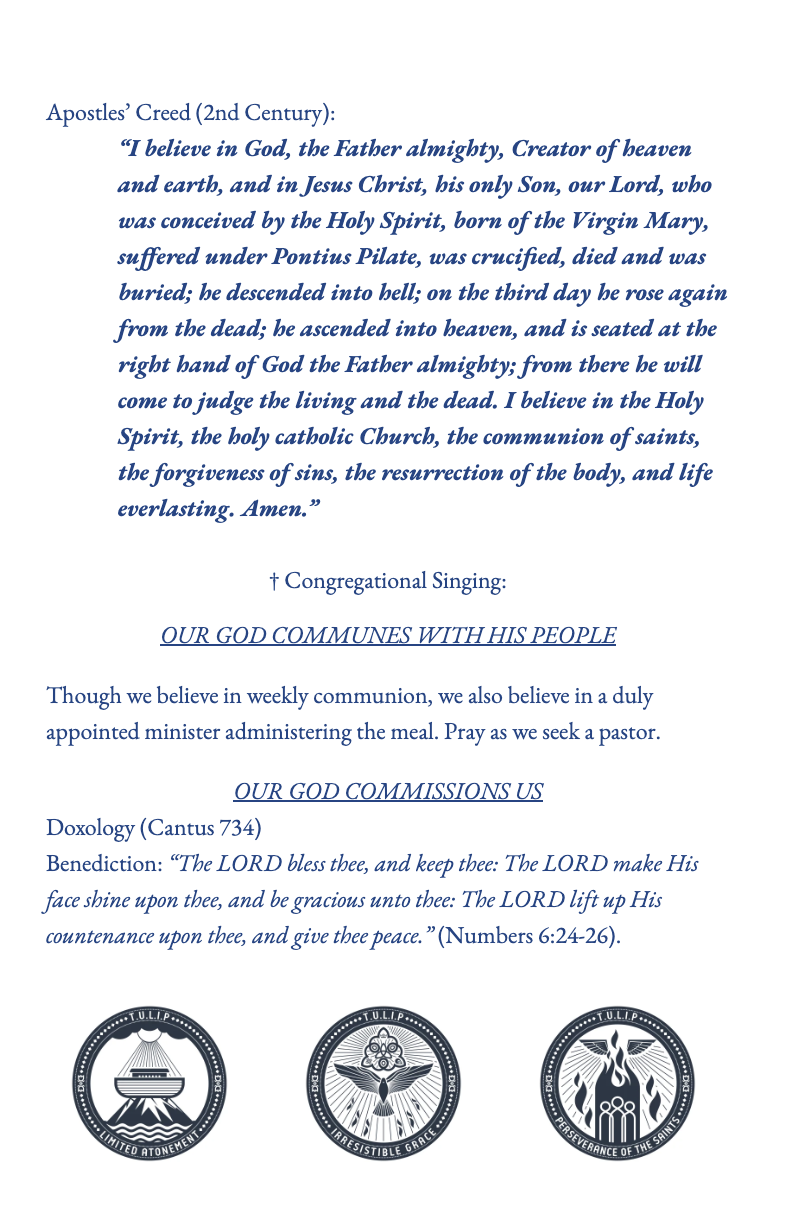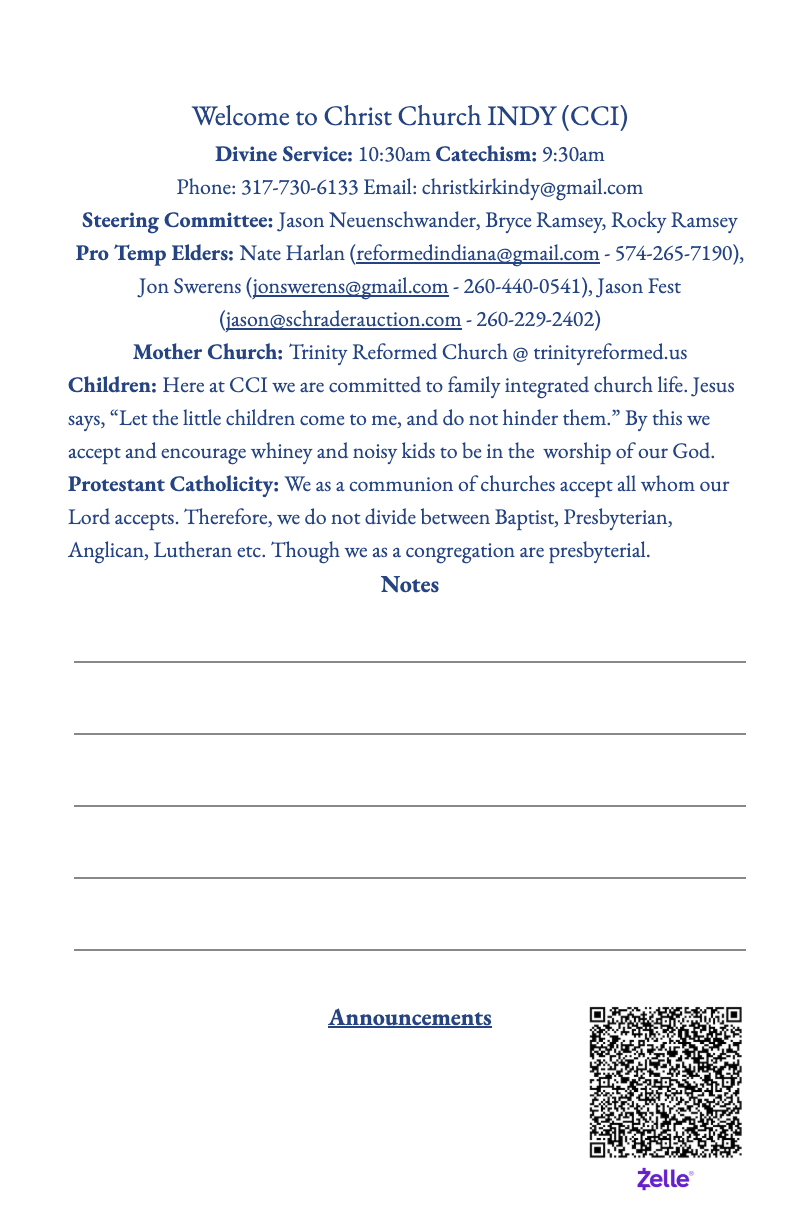

Christ Church Indy
“Every church service is a liturgy, if it has various elements in some arrangement. That is what liturgy is. Liturgical churches are churches that have thought about those elements and their proper order. Nonliturgical churches are those that have not. It is no compliment to say that a church is a nonliturgical church. It is the same thing as saying it is a church that gives little thought to how it worships God.”
― Jeffrey J. Meyers, The Lord's Service: The Grace of Covenant Renewal Worship
How We Worship
Covenant renewal worship is an approach to Christian worship in which the order of worship is modeled on the structure of biblical covenants and sacrifices. Our worship order at CCI is as follows:
- Call to Worship
- Confession of sin
- Consecration, which includes Bible readings and the sermon
- Communion, or Lord's Supper
- Commissioning, or Benediction
Churches which worship in this way consider that Sunday is the covenant day (Lord's Day) in which the covenant people (the church) meet with God to hear his covenant word (the Bible) and celebrate the covenant meal (the Eucharist). This order of worship is present in Old Testament rituals (Levitivcus 1:1-9). The three Levitical sacrifices – the purification offering, the ascension offering, and the fellowship offering – correspond to steps 2 to 4 above.
How do we know these 3 Levitical sacrifices have relevance as New Covenant Christians? Is that Just Jewish mumbo Jumbo? In a number of places the New Testament uses the Greek word which is a derivative of our English for liturgy. Romans 9:4 says, “Who are Israelites; to whom pertaineth the adoption, and the glory, and the covenants, and the giving of the law, and the service (Latreia) of God . . .” this same word is also used in Hebrews 9:1, “Then verily the first covenant had also ordinances of divine service (Latreia), and a worldy sanctuary.” The context for these verses is in reference to the levitical structuring of sanctuary worship. So then when Paul uses the same word in Romans 12:1 we find out that it is the same liturgical structure that we are told to perform: “I Beseech you therefore, brethren, by the mercies of God, that ye present your bodies a living sacrifice, holy, acceptable unto God, which is your reasonable service (Litreia).” Therefore, we see that the sacrificial pattern has not changed, only the sacrifice itself has changed. Instead of a lamb, turtledove, or a cow, we now present our own selves. The sacrifice has been changed and transformed just as the covenant has changed and been transformed (cf. 2 Corinthians 3-4).
Kneeling in worship is often seen as a physical expression of humility, reverence, and submission to God. This practice is rooted in biblical examples where individuals like Jesus and others knelt in prayer (Ezra 9:5–6 ; 2 Chronicles 6:13 ; Daniel 6:10 ; Revelation 19:10), emphasizing their dependence on God and their recognition of His holiness and power. For instance, Jesus knelt in the Garden of Gethsemane to pray, showing His submission to God's will (Luke 22:41-42).
God has given his people infallible, beautiful, and theologically rich songs to sing to him found in the books of Psalms. Not only has he given these songs, he has commanded us to sing them (Ephesians 5:19 ; Colossians 3:16). Therefore, every Lord’s day we sing at least one Psalm to obey the command God has given to his people. For more information please listen to this sermon
Here at CCI we are committed to family integrated church life. Jesus says, “Let the little children come to me, and do not hinder them.” By this we accept and encourage whiney and noisy kids to be in the worship of our God.”



